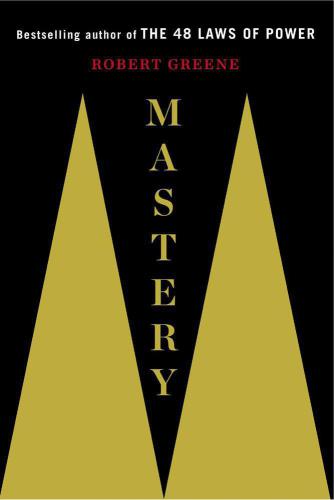
Mastery
کتاب های مرتبط
- اطلاعات
- نقد و بررسی
- دیدگاه کاربران
نقد و بررسی

August 20, 2012
We are born masters but sometimes, especially during the trials of adulthood, we need external guidance to reach our potential, says bestselling author Greene (The 48 Laws of Power). His description of mastery is reminiscent of what positive psychologists describe as "flow": a state that feels effortless once achieved. Yet mastery requires work. Greene outlines the process in nearly 50 steps, with several overarching themes: retaining a child's sense of wonder, learning from other masters, and avoiding financially motivated goals. The steps are interspersed with the stories of people who have famously achieved success: the Wright Brothers, Benjamin Franklin, Thomas Edison, Mozart, Temple Grandin, and many more. Relatively few of these examples are contemporary, which poses the question of whether such mastery is possible in our current economic and profit-driven environment. And 48 steps are a little much for even the mastery-oriented mind, and Greene's presentation is disjointed and occasionally confusing. But what this book lacks in clarity it makes up for in its stories and persistent encouragementâthe inspiration that is essential for anybody who strives to live a full, mastered life. Agent: Michael Carlisle, Inkwell Management.

October 1, 2012
Greene (The 33 Strategies of War, 2007, etc.) believes that genius can be learned if we pay attention and reject social conformity. The author suggests that our emergence as a species with stereoscopic, frontal vision and sophisticated hand-eye coordination gave us an advantage over earlier humans and primates because it allowed us to contemplate a situation and ponder alternatives for action. This, along with the advantages conferred by mirror neurons, which allow us to intuit what others may be thinking, contributed to our ability to learn, pass on inventions to future generations and improve our problem-solving ability. Throughout most of human history, we were hunter-gatherers, and our brains are engineered accordingly. The author has a jaundiced view of our modern technological society, which, he writes, encourages quick, rash judgments. We fail to spend the time needed to develop thorough mastery of a subject. Greene writes that every human is "born unique," with specific potential that we can develop if we listen to our inner voice. He offers many interesting but tendentious examples to illustrate his theory, including Einstein, Darwin, Mozart and Temple Grandin. In the case of Darwin, Greene ignores the formative intellectual influences that shaped his thought, including the discovery of geological evolution with which he was familiar before his famous voyage. The author uses Grandin's struggle to overcome autistic social handicaps as a model for the necessity for everyone to create a deceptive social mask. Readers unfamiliar with the anecdotal material Greene presents may find interesting avenues to pursue, but they should beware of the author's quirky, sometimes misleading brush-stroke characterizations.
COPYRIGHT(2012) Kirkus Reviews, ALL RIGHTS RESERVED.

June 1, 2012
Want to be the master of your universe? Greene shows you how by looking at the folks who have done it before you, from middling-student Charles Darwin to Temple Grandin, Henry Ford, and more. Since Greene's books (e.g., The 48 Laws of Power) have sold more than a million copies, he must have something to say to folks out there.
Copyright 2012 Library Journal, LLC Used with permission.

























دیدگاه کاربران